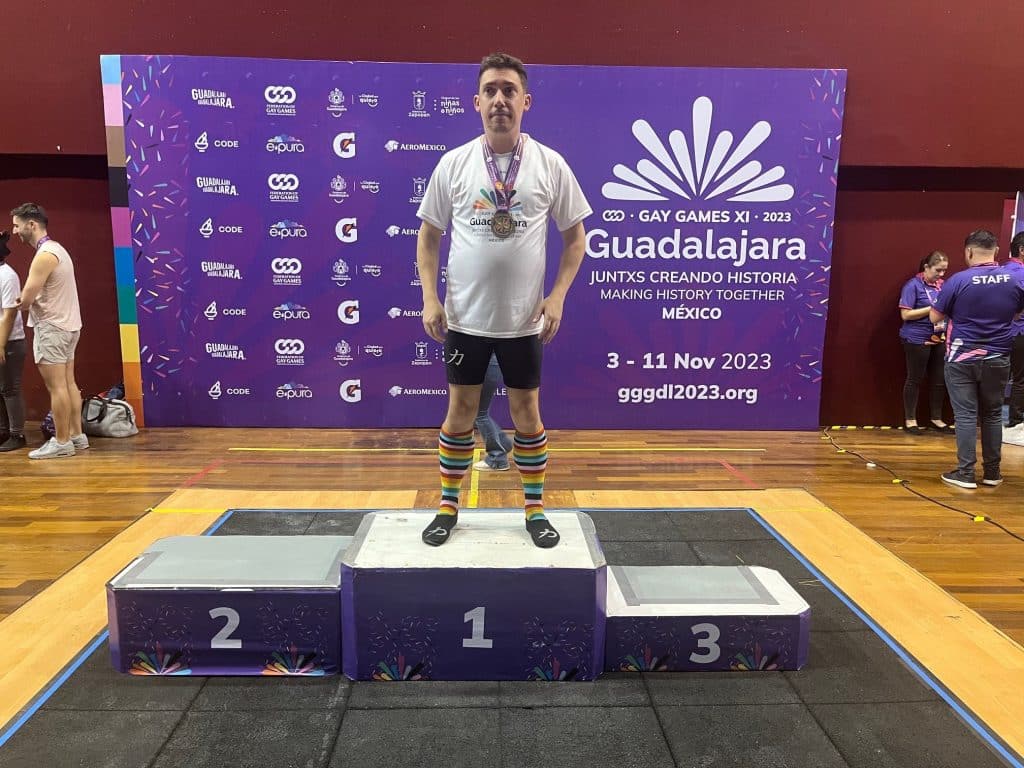“It’s a real challenge to be non-binary and open about it in sport.”
Adrian Hyyrylainen-Trett is a Liberal Democrat politician and also enthusiastic about sport. Adrian is non-binary, living with HIV and was a gold medallist at the recent Gay Games.

Tell us about non-binary representation in sport.
Within sport, it’s rare for people to be open about their non-binary status. There are examples, such as Quinn, the Canadian footballer who competed in the Women’s World Cup last year. They are the first Olympic gold medallist as a non-binary athlete. It’s a complex issue. When I competed in the Guadalajara Gay Games 2023, in the powerlifting competition, we had specifically created a MX category therefore providing the option for non-binary and trans athletes to compete in their own category or allowing trans athletes to compete in their affirmed gender. We made it the most inclusive possible, but that is almost unique in sport. It’s a real challenge to be non-binary and open about it in sport, so the number of role models are few and far between.
Which non-binary people inspire you?
Because I’m of an older generation, there weren’t many open and out non-binary people of my age. Those who are younger like Sam Smith, Olly Alexander, Demi Lovato, they have come out in their twenties and thirties while I’m already in my mid-forties. There is a real challenge for someone of my age and older to find non-binary peers who are out and proud. I take inspiration from people who are younger and have come out much earlier in their lives. Following Quinn’s example, for instance, gave me a lot of support, not just for competing but also wanting to gain that gold medal in Guadalajara.
In 2015, you were the UK’s first Parliamentary candidate openly living with HIV. Have attitudes towards people living with HIV changed in politics since then?
I don’t think they have. There have been other candidates openly living with HIV, but they are still very few and far between. Stigma and the comments this generates are pervasive. They are still as bad as when I came out in 2015. It’s the same type of comments, around promiscuity or not being healthy. The lack of knowledge and education is widespread, particularly amongst people of my age, even about transmission and what that entails. There’s a lot of work to do. In 2015, when I came out about my HIV, I hoped that we would have those conversations. Sadly, we’ve had governments over the past few years who have not just failed to progress LGBTQIA+ rights, but where regression has occurred on trans and non-binary rights, we still do not have a ban on conversion practices and the current government shows little interest in tackling HIV stigma.
Follow Adrian on X @Juvelad

